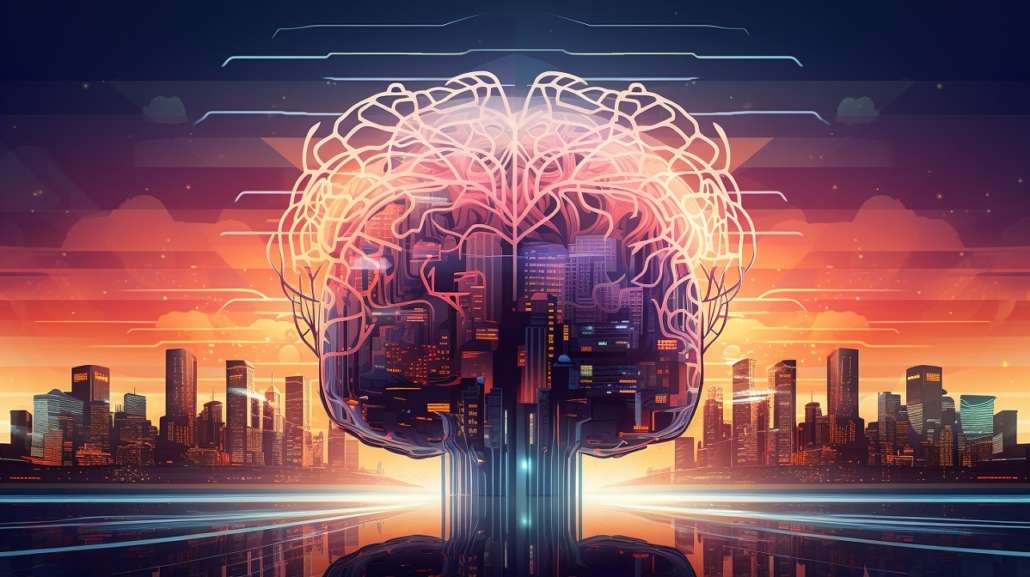ERIC’S TECH TALK: What is “intelligence” in the age of A.I.?

 by Eric W. Austin
by Eric W. Austin
In an age where artificial intelligence (AI) increasingly integrates into our daily lives, from virtual assistants to autonomous vehicles, the question of what constitutes ‘intelligence’ becomes increasingly relevant. Is it the ability to solve complex problems, the capacity for creative thought, or something more elusive?
When we witness machines performing tasks once thought exclusive to humans, it challenges our traditional understanding of intelligence. This leads us to ponder: can machines truly ‘think’, or are they merely simulating a facet of human cognition? As we venture deeper into this era of advanced AI, it’s crucial to explore not only how we define intelligence but also the implications of attributing such a quality to machines. This exploration raises profound questions about our perceptions of intelligence and the potential risks of misjudging the line between genuine cognitive abilities on one hand, and sophisticated programming on the other.
Defining intelligence has long been a subject of debate among psychologists, neuroscientists, and AI researchers. Intelligence in humans is often gauged by the ability to learn, adapt to new situations, understand complex concepts, and apply logical reasoning. Psychological assessments, like IQ tests, attempt to quantify these abilities, though they remain subject to debate regarding their comprehensiveness and bias. In the realm of AI, intelligence takes on a different hue – it’s about the ability of machines to perform tasks that would typically require human intelligence. This includes pattern recognition, language understanding, and decision-making. However, this technological mimicry begs the question: does the replication of human-like problem-solving denote true intelligence, or is it merely a sophisticated imitation? The distinction is crucial, as it shapes our understanding of AI’s role and potential in our society.
Consider a straightforward scenario: a man is tasked with delivering boxes from Point A to Point B. Upon arrival, his job involves carrying the boxes up a flight of stairs to a designated spot. This task, while simple, is generally perceived as one carried out by an intelligent agent – a human. Now, imagine automating a part of this process: at the destination, a conveyor belt is introduced. Instead of manually carrying the boxes upstairs, the man places them on the conveyor belt, which completes the task. Although the end result is the same, attributing intelligence to the conveyor belt seems illogical. This suggests that the mere completion of a task, initially performed by a human, doesn’t inherently transfer the attribute of intelligence to the machine.
On the other hand, consider a task undeniably associated with human intelligence: writing a poem in iambic pentameter. This creative endeavor requires not just linguistic skill but also emotional depth, creativity, and an understanding of complex literary techniques. If we were to replace the human poet with a machine capable of crafting a comparable poem, does the achievement of this task by the machine signify intelligence? This juxtaposition of tasks, from the mundane to the highly complex, raises a pivotal question: Is the distinction we draw between these tasks in terms of intelligence merely a matter of their complexity, or is there a deeper criterion at play in our perception of what constitutes ‘intelligent’ action?
As we turn our gaze to the present capabilities of AI, we find a landscape teeming with advancements that once bordered on the realms of science fiction. Today’s AI systems can diagnose diseases, translate languages in real-time, create stunning artwork, and even write articles like this one. The complexity and sophistication of these tasks are escalating rapidly, pushing the boundaries of what we thought machines could achieve. Does the ability of AI to perform these complex tasks equate to intelligence? Or are these systems still operating within the realm of advanced algorithms and data processing, lacking the essence of true cognitive understanding?
The concept of Artificial General Intelligence (AGI) takes this discussion a step further. AGI refers to a machine’s ability to understand, learn, and apply its intelligence to a wide range of problems, much like a human brain. Unlike specialized AI designed for specific tasks, AGI embodies the flexibility and adaptability of human intellect. The pursuit of AGI raises profound questions: If a machine can mimic the broad cognitive abilities of a human, does it then possess ‘intelligence’ in the true sense? And how do we reconcile this with our earlier distinctions between simple automation and genuine intelligence?
As AI continues to evolve and blur the lines between programmed efficiency and cognitive ability, we find ourselves grappling with the very nature of intelligence. From the simplicity of a conveyor belt to the complex potential of AGI, our understanding of intelligence is continually being challenged and redefined. This article does not seek to provide definitive answers but rather to provoke reflection on what it means to be intelligent, both in humans and machines.
As we witness the rapid advancement of AI technologies, the question remains open for interpretation and contemplation: What truly defines intelligence, and how close are we to witnessing its embodiment in the machines of tomorrow?
Responsible journalism is hard work!
It is also expensive!
If you enjoy reading The Town Line and the good news we bring you each week, would you consider a donation to help us continue the work we’re doing?
The Town Line is a 501(c)(3) nonprofit private foundation, and all donations are tax deductible under the Internal Revenue Service code.
To help, please visit our online donation page or mail a check payable to The Town Line, PO Box 89, South China, ME 04358. Your contribution is appreciated!


Leave a Reply
Want to join the discussion?Feel free to contribute!